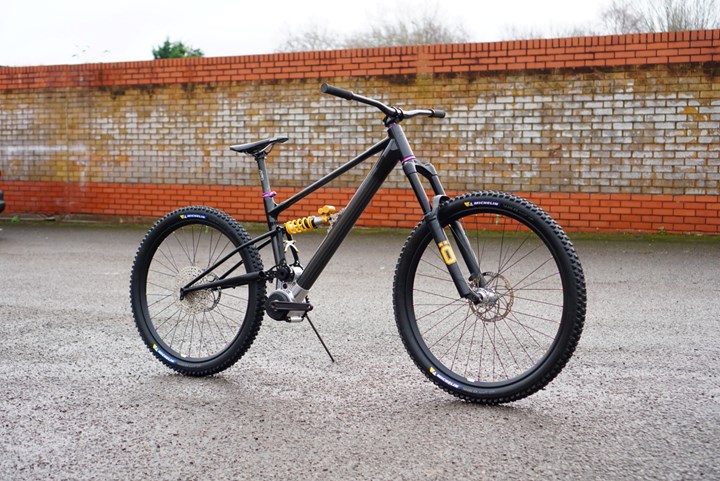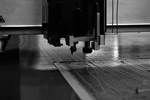CFRTP E-bike frames enable repair and end-of-life repurposing
Under its Novel Composites E-Bike project, the NCC, with Starling Cycles and Composite Braiding, proved the use of thermoplastics for the production of electric mountain bicycle frames.

Thermoplastic E-bike. Photo Credit: NCC
Under its Novel Composites E-Bike project funded by Innovate UK, the National Composites Center (NCC, Bristol, U.K.), with mountain bike manufacturer, Starling Cycles (Bristol) and thermoplastic composite braiding technology company Composite Braiding (Bristol), has proven that carbon fiber-reinforced thermoplastics (CFRTP) can be used to make an electric mountain bike frame.
This capability, says the NCC, will enable bike frames using CFRTP to be repaired and recycled at end of life (EOL) more easily, counteracting readily available composite bikes using thermoset epoxies — thermoplastics can soften when heat is applied to them for reshaping. This is significant, as the demand for E-bikes in Europe is expected to grow in the coming years, with anticipated sales increasing from 3.7 million bikes sold in 2019 to 17 million in 2030.
Currently, Starling Cycles manufacture its handmade E-bikes frames from steel. However, using a lightweight thermoplastic composite frame instead will increase bike range and offer a more sustainable product.
At the start of the project, the NCC conducted a life cycle assessment (LCA) of Starling Cycles’ existing manufacturing methods and the frame design, which further enabled Starling Cycles to ascertain where future improvements can be made to its design and manufacturing process. From there, the NCC developed a novel manufacturing process to create the lugs required to hold the frame together.
Using a commingled material of carbon fiber and nylon, the novel method reportedly facilitates an improved fiber deposition for maximum performance. Commingled materials combine the fiber and resin into a single material, removing the need to separately infuse the resin later in the manufacturing, making it a more efficient process.
According to the NCC, in addition to showing that thermoplastics are a strong enough material to be used for a bike frame, the expanded understanding of how they can be reworked and reused has opened the door to using thermoplastics in other components across industry. They also offer the potential for higher production rates (due to the lack of separate infusion process) while still providing high quality of composites, suggesting further reduction in costs and environmental impact may be possible.
Related Content
-
The lessons behind OceanGate
Carbon fiber composites faced much criticism in the wake of the OceanGate submersible accident. CW’s publisher Jeff Sloan explains that it’s not that simple.
-
Natural fiber composites: Growing to fit sustainability needs
Led by global and industry-wide sustainability goals, commercial interest in flax and hemp fiber-reinforced composites grows into higher-performance, higher-volume applications.
-
Bio-based acrylonitrile for carbon fiber manufacture
The quest for a sustainable source of acrylonitrile for carbon fiber manufacture has made the leap from the lab to the market.















